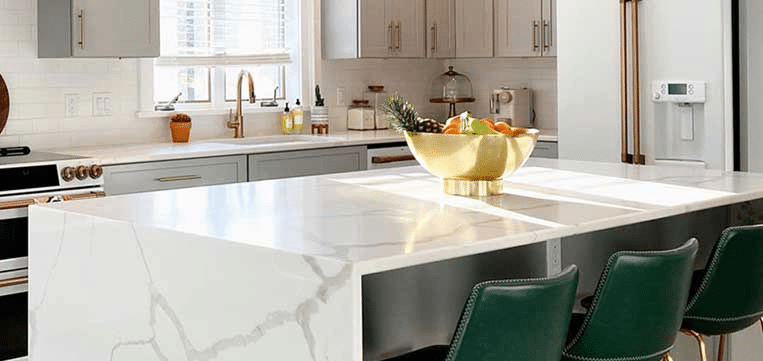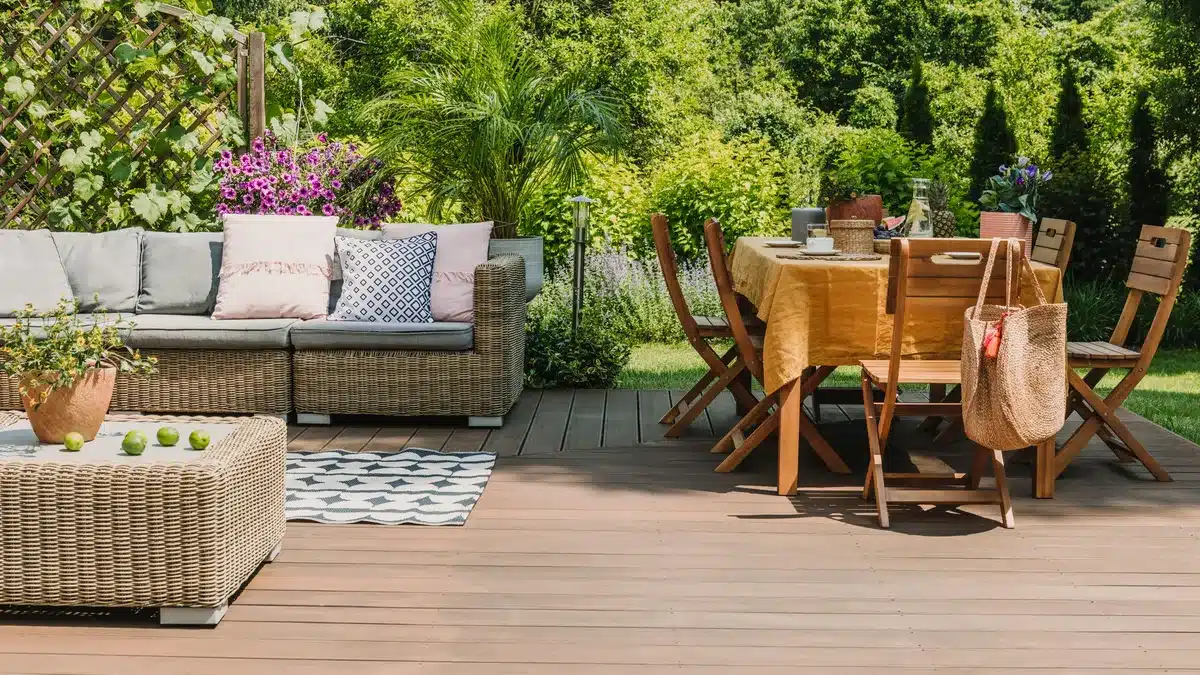Preserving the Beauty: A Homeowner’s Guide to Stone Care and Longevity
Whether it’s marble or slate, every type of stone needs a loving touch to keep looking its best. Here, we share easy-to-follow tips and maintenance tricks that ensure your stone investments continue to radiate beauty for years to come.
Key Takeaways
- Use gentle, pH-neutral cleaners and mild soap when cleaning your stone surfaces regularly. Avoid using harsh tools that can scratch them.
- Different types of stone require specific cleaning techniques. For example, be gentle with marble, and make sure to regularly seal granite.
- To prevent damage, always use coasters and hot pads, and keep up with regular sweeping or vacuuming. Consider professional help for deep cleaning and sealing.
- Deal with spills promptly by blotting them, then rinsing with water and mild soap. For tough stains, professional assistance may be necessary.
- Hiring stone restoration professionals brings expertise, specialized tools, saves you time, and ultimately saves money in the long run when maintaining your stone surfaces.
General Stone Care
To ensure the longevity and beauty of your stone surfaces, understanding proper general stone care is essential. By following these tips, you can keep your stone looking its best.
- Use pH-neutral cleaners to avoid harm to the stone, and opt for warm water and mild soap for routine cleaning.
- Avoid using abrasive tools that could cause scratches, and promptly blot spills, especially for porous stones like marble.
- Don’t forget to follow the manufacturer’s recommendations for regular sealing.
Specific Stone Care Guidelines
Each kind of stone has its own special cleaning needs to help it look fresh and last longer.
With marble, skip cleaning solutions that are acidic, like lemon juice or vinegar. Instead, clean it gently using mild, soapy water or cleaners made just for marble.
Granite needs to be sealed often to keep stains away. When you clean it, just use some mild dish soap and warm water.
For cleaning slate, stick with cleaners that are pH-neutral and don’t use rough brushes – soft ones or cloths are best to keep from scratching it.
Not sure how to how to clean sandstone? It’s best to steer clear of typical household cleaners unless they specifically mention they’re safe for natural stone.
If your stone needs some serious help or a refresh, get advice from the pros. They have the right know-how for deeper cleaning and restoration. Plus, they can seal your stone expertly, especially in areas with heavy foot traffic.
Regular Stone Cleaning and Maintenance Tips
To effectively maintain the beauty and longevity of your stone surfaces, it’s important that you prioritize regular cleaning and maintenance.
- Start by dust mopping your floors frequently with a clean, non-treated dry dust mop.
- For interior tile, lightly mop with warm water as needed.
- Sweep exterior tile periodically to prevent staining from fallen leaves or grass clippings, and rinse with a garden hose and scrubbing broom for periodic cleaning.
- Avoid using high-pressure washers, as they can damage the stone and grout lines.
- Use mats or area rugs to minimize scratching from sand and dirt.
- Blot spills immediately with a paper towel and flush the area with water and mild soap.
- For stubborn stains, consider using a small hand-steamer or seek professional help.
Regular cleaning and maintenance will ensure your stone surfaces remain beautiful and durable for years to come.
Effective Spill and Stain Removal
To effectively remove spills and stains from your stone surfaces, follow these simple yet powerful steps:
- Blot spills immediately with a paper towel, avoiding wiping which can spread the spill.
- Flush the area with water and mild soap, rinsing several times.
- Dry the area thoroughly with a soft cloth.
- For stubborn stains, try using a small hand-steamer with a brush attachment to lift and scrub away stains with boiling water.
If you’re dealing with difficult stains or need overall maintenance, consider hiring a professional stone cleaning and restoration company. It’s important to identify the type of stain on the stone surface to determine the appropriate removal method.
Stains can be oil-based, organic, metallic, biological, ink-based, paint-based, or acid-based. Use the recommended cleaning agents or contact an expert for guidance.
The Importance of Hiring Stone Restoration Professionals
When it comes to maintaining the beauty and longevity of your stone surfaces, it’s important to consider hiring stone restoration professionals. Here are four reasons why:
1. Expertise
Stone restoration professionals have the knowledge and experience to effectively clean, repair, and protect your stone surfaces. They understand the unique characteristics of different types of stone and can provide tailored solutions.
2. Specialized Tools and Techniques
These professionals have access to specialized tools and techniques that are specifically designed for stone restoration. They know how to safely remove stains, polish surfaces, and repair any damage without causing further harm.
3. Time and Convenience
Hiring professionals saves you time and effort. They have the skills and resources to efficiently complete the restoration process, allowing you to focus on other priorities.
4. Long-Term Cost Savings
Proper stone restoration can prevent further damage and prolong the lifespan of your stone surfaces. By investing in professional services, you can avoid costly repairs or replacements in the future.
FAQs
What is the best cleaner for stone?
The best cleaner for stone is a pH-neutral stone-specific cleaner.
Will hydrogen peroxide damage natural stone?
Hydrogen peroxide can damage natural stone if left on for extended periods or used in high concentrations.
Can you use vinegar to clean natural stone?
It’s not recommended to use vinegar to clean natural stone as it can etch and dull the surface.
Can you use a steam mop on natural stone floors?
Avoid using a steam mop on natural stone floors, as the heat and moisture can cause damage to the stone and grout.







